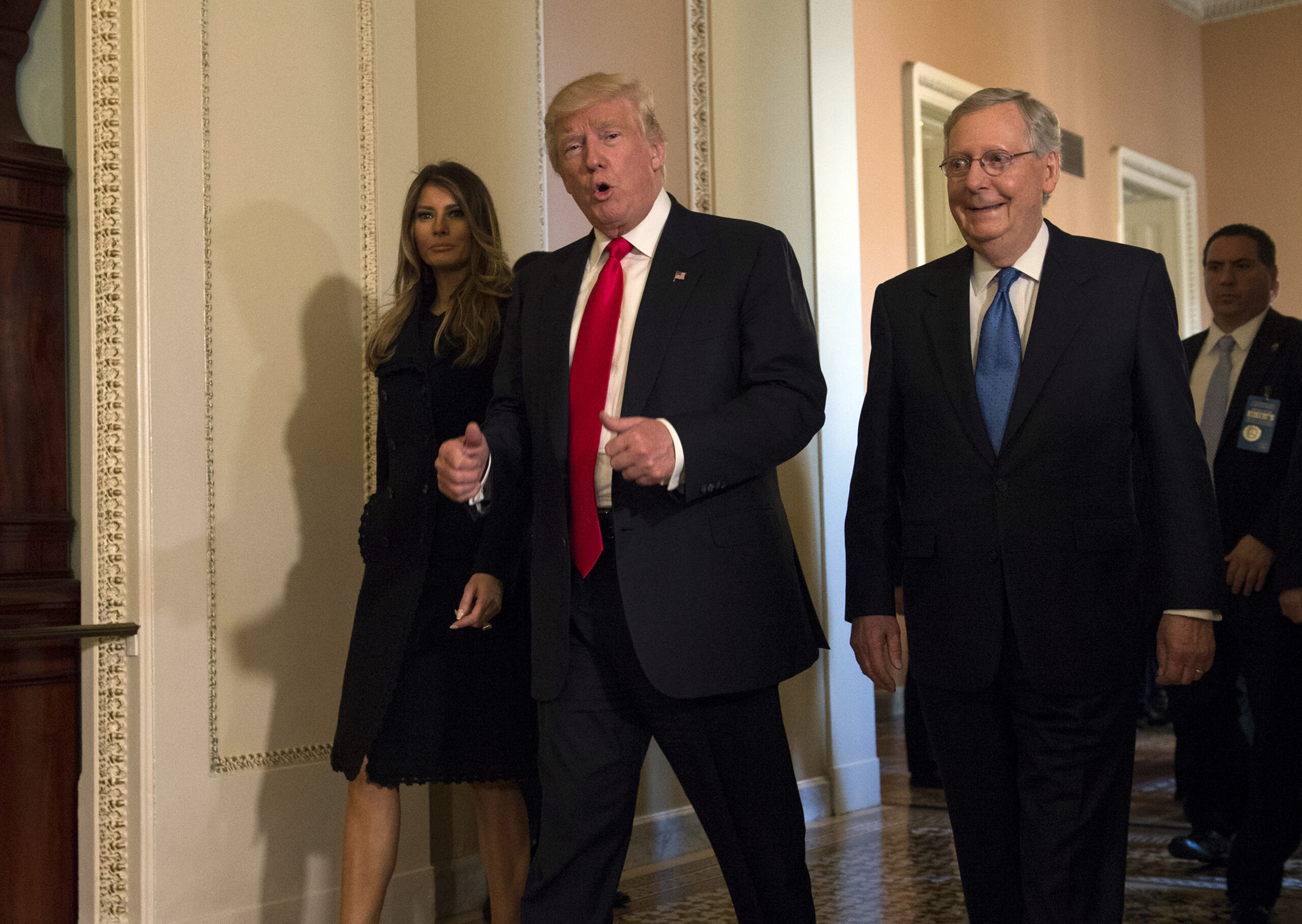If the failure to repeal Obamacare was an opportunity for Senate Majority Leader Mitch McConnell to learn about the importance of bipartisanship, he has yet to pick up on the lesson.
Less than a week after Sen. John McCain of Arizona scuttled the Obamacare repeal efforts in a speech that denounced the lack of bipartisanship, McConnell, R-Ky., has admitted that he has no intention of directing his energies toward bringing Democrats on board with tax reform. “I don’t think this is going to be 1986, when you had a bipartisan effort to scrub the code,” McConnell told reporters, according to Politico. He also stated that he had no interest in working with the Democratic senators who signed a letter asking Republicans not to add to the deficit, reduce taxes for the richest 1 percent or use the reconciliation process to force through the bill (which would make it filibuster-proof).
In effect, this means that McConnell is only open to working with three of his Democratic colleagues — Sen. Joe Donnelly of Indiana, Sen. Heidi Heitkamp of North Dakota and Sen. Joe Manchin of West Virginia.
Of course, even that window of opportunity doesn’t seem to be particularly wide. President Donald Trump has not made any efforts to reach out to the 10 Democratic senators from states that he won during the 2016 presidential election, according to a report by Axios. This includes Donnelly, Heitkamp and Manchin, and raises questions about whether even comparatively conservative Democrats are going to be made to feel welcome in shaping Trump era policies by the Republican Party.
Other factors may also complicate the GOP’s tax reform plans. It may be challenging for them to prioritize tax policy before the current budget is scheduled to expire next month — and, around that same time, the debt ceiling will need to be raised in order for the government to pay its bill, according to a The Washington Post. Because the Senate and House are only scheduled for 12 days of sessions together between now and the debt ceiling deadline on Sept. 29, it may be difficult for them to pass tax reform prior to then.

